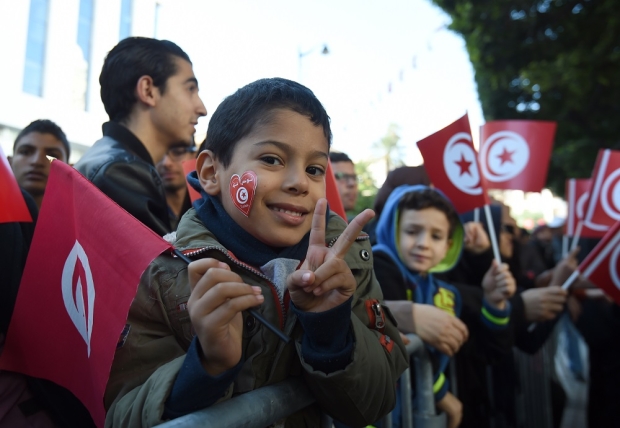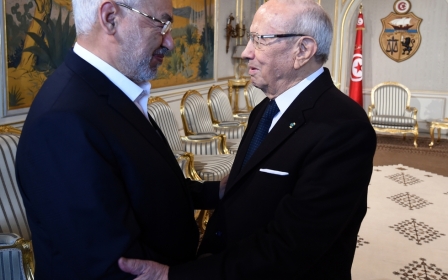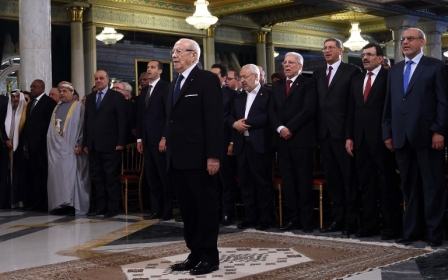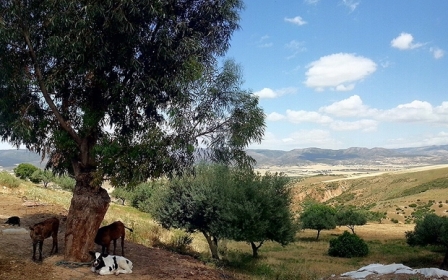Thousands gather to mark 5th anniversary of Tunisian revolution
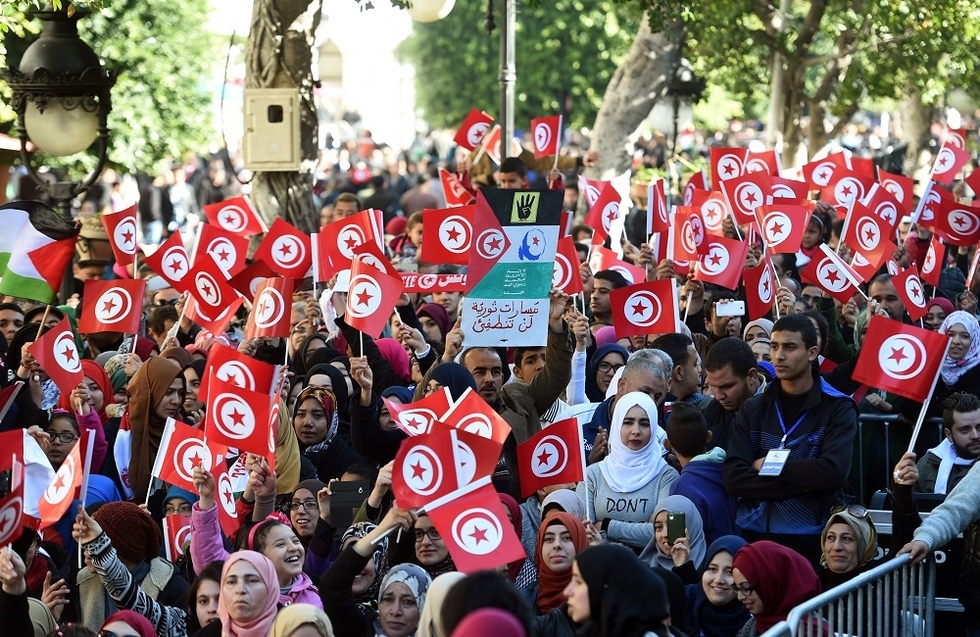
Thousands gathered in the Tunisian capital Thursday to mark the fifth anniversary of the overthrow of longtime strongman Zine El Abidine Ben Ali in the uprising that inspired the Arab Spring.
Tunisians thronged Habib Bourguiba Avenue, the main thoroughfare in central Tunis and the epicentre of the country's revolution five years ago.
Some attended political rallies, chanting revolutionary slogans like "Work! Freedom! Dignity!", while others listened to concerts or reminisced about the uprising.
For many the anniversary raised mixed feelings, with fierce pride at the revolution tempered by concerns over continued economic problems and a rise in militant violence.
"The revolution did not help me in any way - prices went up, many young people are still marginalised," Latifa, a 40-year-old seamstress, told AFP.
"But I came to celebrate anyway, because the revolution brought us some democracy, and that's important."
There was a heavy police presence at Thursday's celebrations, after Tunisia suffered a wave of deadly attacks last year.
Ben Ali stepped down on 14 January 2011 after tens of thousands of Tunisians took to the streets to oppose his 23-year rule. He subsequently fled to exile in Saudi Arabia, where he remains.
The revolution inspired similar uprisings in Egypt, Syria, Libya, Yemen and other Arab countries but only Tunisia is considered a relative success story of the so-called Arab Spring.
The country organised widely hailed elections in 2011 and 2014, adopted a new constitution and last year its National Dialogue Quartet - a group of four civil society organisations - was awarded the Nobel Peace Prize for helping to save its transition to democracy.
Legislative and presidential elections, widely deemed free and fair, took place in 2014 shifting the balance of power from the Ennahda party, which believes in political Islam, to the Nidaa Tounes party, widely described as secular and made up a broad range of supporters from former Ben Ali loyalists to some leftists and secularists.
While Nidaa has fragmented in recent months and no longer holds the majority in parliament, Tunisia’s democracy appears to be ticking over, with parliament still meeting and little talk of political upheaval.
But Tunisia has struggled to revive its economy, with poverty and unemployment still high.
There has also been a surge in militant violence since Ben Ali's overthrow, most dramatically in the attacks on the Bardo museum and on a Mediterranean resort last year that killed a total of 60 people, all but one of whom were foreign tourists.
"We are proud of the Tunisian exception, which dazzled the world. Tunisia broke once and for all with authoritarianism and tyranny," Prime Minister Habib Essid said in a statement to mark the anniversary.
"We are working together to fulfil the many demands of the revolution, especially the guarantee of a dignified life for all," he said, adding that "winning the war on terrorism remains an essential condition".
Essid last week announced a major cabinet reshuffle, amid growing public frustration at the lack of progress in improving the economy and attacks by the Islamic State group.
A ceremony was to take place later Thursday at the presidential palace in Carthage, with President Beji Caid Essebsi giving a speech to lawmakers and other public figures.
New MEE newsletter: Jerusalem Dispatch
Sign up to get the latest insights and analysis on Israel-Palestine, alongside Turkey Unpacked and other MEE newsletters
Middle East Eye delivers independent and unrivalled coverage and analysis of the Middle East, North Africa and beyond. To learn more about republishing this content and the associated fees, please fill out this form. More about MEE can be found here.


